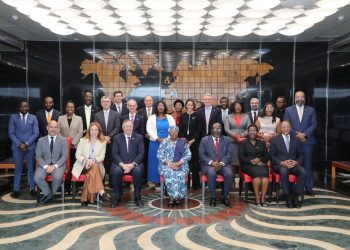
As Namibia positions itself to become an oil-producing nation, economists are warning that the country must put in place robust governance and fiscal safeguards before production begins.
Simonis Storm junior economist Almandro Jansen says the country is at a critical juncture following major offshore oil discoveries in the Orange Basin.
“Namibia’s oil sector remains in a formative, pre-production phase. This delay, far from being a setback, constitutes a strategic window: an opportunity to establish the institutional, regulatory, and fiscal frameworks necessary to govern petroleum wealth effectively, before it begins to flow,” Jansen said.
While acknowledging some early progress—such as the creation of the Welwitschia Sovereign Wealth Fund and Namcor’s participation in upstream activities—Jansen warned that key gaps remain.
He stressed that Namibia still does not have a legally binding fiscal rule to guide the future use of oil revenues, leaving the economy vulnerable to poor financial management once production starts.
“No formal fiscal rule has yet been adopted to define the permissible use of future oil revenues, leaving open the risk of procyclical spending and fiscal drift once production begins,” he said.
Jansen pointed to Norway’s Government Pension Fund Global, valued at more than US$1.8 trillion, as a model worth emulating. The fund operates under a strict rule limiting government withdrawals to 3% of its real return annually.
“Namibia should codify a legally enforceable spending rule such as Norway’s 3% real return formula to anchor fiscal discipline, smooth expenditure volatility, and safeguard intergenerational equity,” he said.
Namibia’s Welwitschia Fund, valued at N$460 million as of March 2025, remains politically exposed without legal protections, Jansen noted. “Without these, its credibility as a savings and stabilisation tool remains limited,” he said.
Transparency in the petroleum sector also remains a concern. Namibia has yet to join the Extractive Industries Transparency Initiative (EITI), and public access to oil contracts is still restricted.
“Joining the EITI would formalise disclosure of contracts, revenue flows, and beneficial ownership, while embedding accountability in the sector’s DNA,” said Jansen.
He contrasted Namibia’s current position with that of other African oil producers such as Nigeria and Angola, where weak institutions have allowed oil wealth to fuel corruption and deepen inequality.
“Hydrocarbons generate revenue, but only institutions create sustainable wealth,” he said, citing Nigeria’s modest US$3 billion sovereign fund and limited investment in public services.
Despite the risks, Jansen believes Namibia is in a unique position to do things differently.
“Namibia is not the first African country to discover oil, but it is among the very few to do so with the benefit of hindsight,” he said.
He argued that petroleum revenues should not be used to fund short-term spending but rather to stabilise debt and support long-term economic goals.
“Oil income must not be treated as a windfall to finance consumption. It should be allocated, by law, to stabilise public debt, ease the interest burden, and finance productivity-enhancing investments in skills, logistics, infrastructure, and energy transition,” said Jansen.
He added that oil policy must align with national development priorities, particularly diversification into green hydrogen, manufacturing, digital infrastructure and logistics.
“Oil should not become Namibia’s identity. It should finance the kind of economy we want to build,” he said.
Jansen concluded that Namibia’s real opportunity lies in the decisions it makes now, before a single barrel is produced.







